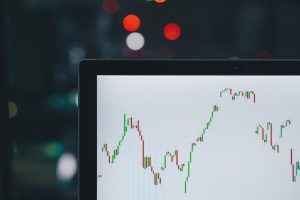The foreign exchange market, commonly referred to as forex, is the largest financial market in the world. It operates 24/7, with trading volumes exceeding $5 trillion per day. As with any financial market, regulation is necessary to ensure the market operates fairly and transparently. In the United States, several bodies are responsible for regulating forex trading.
The Commodity Futures Trading Commission (CFTC) is the primary regulatory body for the forex market in the United States. The agency was established in 1974 to oversee the futures and options markets, including forex trading. The CFTC’s mission is to protect market participants and the public from fraud, manipulation, and abusive practices related to futures and options trading.
The CFTC regulates forex trading in the United States through several means. First, it requires forex brokers operating in the United States to register with the agency and meet certain financial and operational requirements. These requirements include maintaining minimum levels of capital, segregating client funds, and providing customers with transparent pricing and execution.
Second, the CFTC enforces strict rules regarding the marketing and advertising of forex trading. Forex brokers must provide clear and accurate information about the risks and rewards of trading forex, and they must not make false or misleading claims about potential profits or guarantees of success.
Third, the CFTC monitors forex trading activity to ensure that market participants are not engaging in fraudulent or manipulative practices. The agency has the authority to investigate and prosecute individuals and companies that violate its rules and regulations.
In addition to the CFTC, the National Futures Association (NFA) also plays a role in regulating forex trading in the United States. The NFA is a self-regulatory organization that was established in 1982 to oversee futures and options trading. The organization is responsible for enforcing CFTC rules and regulations, as well as its own set of rules and bylaws.
Forex brokers operating in the United States must be members of the NFA and adhere to its rules and regulations. The NFA requires forex brokers to maintain high standards of business conduct, including ethical business practices, fair dealing with customers, and financial transparency.
The NFA also provides mediation and arbitration services for customers who have disputes with their forex brokers. Customers can file complaints with the NFA, and the organization will investigate and attempt to resolve the issue through mediation. If mediation is unsuccessful, the NFA can provide arbitration services to settle the dispute.
In summary, forex trading in the United States is regulated by the CFTC and NFA. These organizations work together to ensure that the forex market operates fairly and transparently, and that market participants are protected from fraud and manipulation. Forex brokers operating in the United States must be registered with the CFTC and NFA, and must adhere to strict rules and regulations regarding financial transparency, advertising, and business conduct. Customers who have disputes with their forex brokers can file complaints with the NFA and receive mediation and arbitration services.





